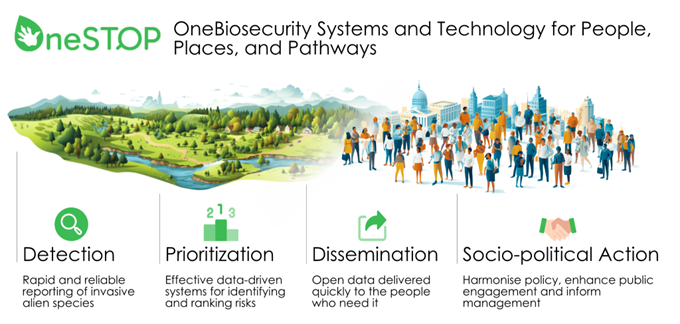OneSTOP seeks to minimise the introduction, establishment and spread of terrestrial invasive alien species (IAS).
It does so by integrating new detection approaches with data dissemination methods and models to prioritise species and action through stakeholder engagement and effective management. By leveraging technologies including computer vision, environmental DNA (eDNA) and citizen science, the project is developing novel approaches for species detection. To support policymakers and practitioners, OneSTOP is implementing a data-driven prioritisation system that uses automated workflows, model projections, and multi-criteria analysis to assess and rank risks effectively. By ensuring that IAS data and software are open and FAIR, the project facilitates rapid information sharing to inform rapid action.
OneSTOP is also incorporating co-creation methodologies through five Living Labs, culturomics for socioeconomic insights, and active stakeholder participation to harmonise policy goals, enhance public engagement and improve IAS management strategies.
At the Division we are working within the Prioritization part of the project focussing particularly on developing prioritization maps for IAS management to reduce their impacts on threatened native species in Europe.


